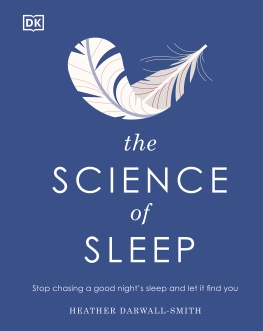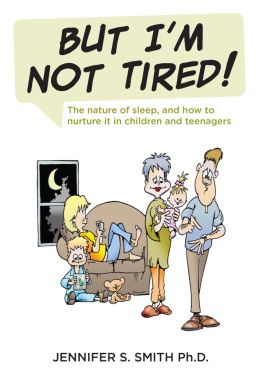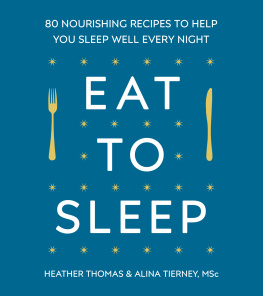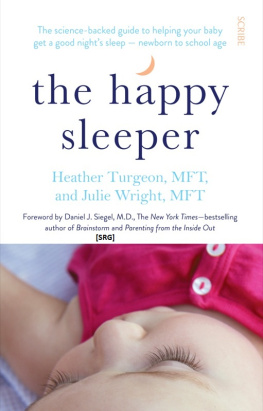Heather Darwall-Smith - The Science of Sleep
Here you can read online Heather Darwall-Smith - The Science of Sleep full text of the book (entire story) in english for free. Download pdf and epub, get meaning, cover and reviews about this ebook. year: 2021, publisher: Dorling Kindersley Ltd, genre: Home and family. Description of the work, (preface) as well as reviews are available. Best literature library LitArk.com created for fans of good reading and offers a wide selection of genres:
Romance novel
Science fiction
Adventure
Detective
Science
History
Home and family
Prose
Art
Politics
Computer
Non-fiction
Religion
Business
Children
Humor
Choose a favorite category and find really read worthwhile books. Enjoy immersion in the world of imagination, feel the emotions of the characters or learn something new for yourself, make an fascinating discovery.
- Book:The Science of Sleep
- Author:
- Publisher:Dorling Kindersley Ltd
- Genre:
- Year:2021
- Rating:5 / 5
- Favourites:Add to favourites
- Your mark:
- 100
- 1
- 2
- 3
- 4
- 5
The Science of Sleep: summary, description and annotation
We offer to read an annotation, description, summary or preface (depends on what the author of the book "The Science of Sleep" wrote himself). If you haven't found the necessary information about the book — write in the comments, we will try to find it.
The Science of Sleep — read online for free the complete book (whole text) full work
Below is the text of the book, divided by pages. System saving the place of the last page read, allows you to conveniently read the book "The Science of Sleep" online for free, without having to search again every time where you left off. Put a bookmark, and you can go to the page where you finished reading at any time.
Font size:
Interval:
Bookmark:


g
Preferred application settings
For the best reading experience, the following application settings are recommended:
- Orientation: Portrait
- Color theme: White background
- Scrolling view: [OFF]
- Text alignment: Auto-justification [OFF](if the eBook reader has this feature)
- Auto-hyphenation: [OFF](if the eBook reader has this feature)
- Font style: Publisher default setting [ON](if the eBook reader has this feature)
g

I am fascinated by sleep; it is the ultimate act of letting go. Its also something we tend to take for granted until problems occur. Suddenly, sleep becomes a fruitless endeavour, and the more we chase it, the more elusive it becomes. Our fixation with perfect sleep interferes with our very ability to achieve it.
As a sleep psychotherapist, my approach is to ask patients to implement various processes to improve their sleep, and to explain exactly how and why these strategies work. I feel strongly that everyone should have access to this knowledge, and thats why I wanted to write this book.
I know that, as human beings, we are biologically programmed to be able to sleep and by working through all the factors that might get in the way of this instinct, each of us can figure out what we need to do in order to be able to prioritize sleep and regain the knack of letting it come naturally.
This book is for anyone who wants to learn about sleep, avoiding the misleading and sometimes harmful clamour that often accompanies the topic. It will guide you through the basics of what sleep is and how it works, then address the most important issues we have around sleep based on questions I am asked on a daily basis in my practice. These are divided into easy-to-digest sections covering all the factors that can influence the quality and quantity of your sleep, including physical and mental health, age, lifestyle, and your sleep environment.
Sleep science is a dynamic, diverse field encompassing every aspect of our biology. New discoveries are constantly being made as we work on unravelling the mysteries of sleep. I continue to study, to be able to include the latest findings in my day-to-day work with clients.
Perhaps the most important message I can share with you is that no one sleeps perfectly and thats okay. My mission in this book is to help you understand and work with your own sleep profile, which is as unique as your fingerprint. Sleep is a vital piece in the jigsaw puzzle of health and wellbeing and by balancing factors such as getting enough sunlight, staying active, reducing stress, and eating well, you really can help yourself to a good nights sleep.
Sleep well and sweet dreams.

Heather Darwall-Smith
g

There are new discoveries every day about how and why we sleep but everything scientists learn confirms that this seemingly simple function lies at the heart of our health and wellbeing.
SLEEP BASICS | Contents
g
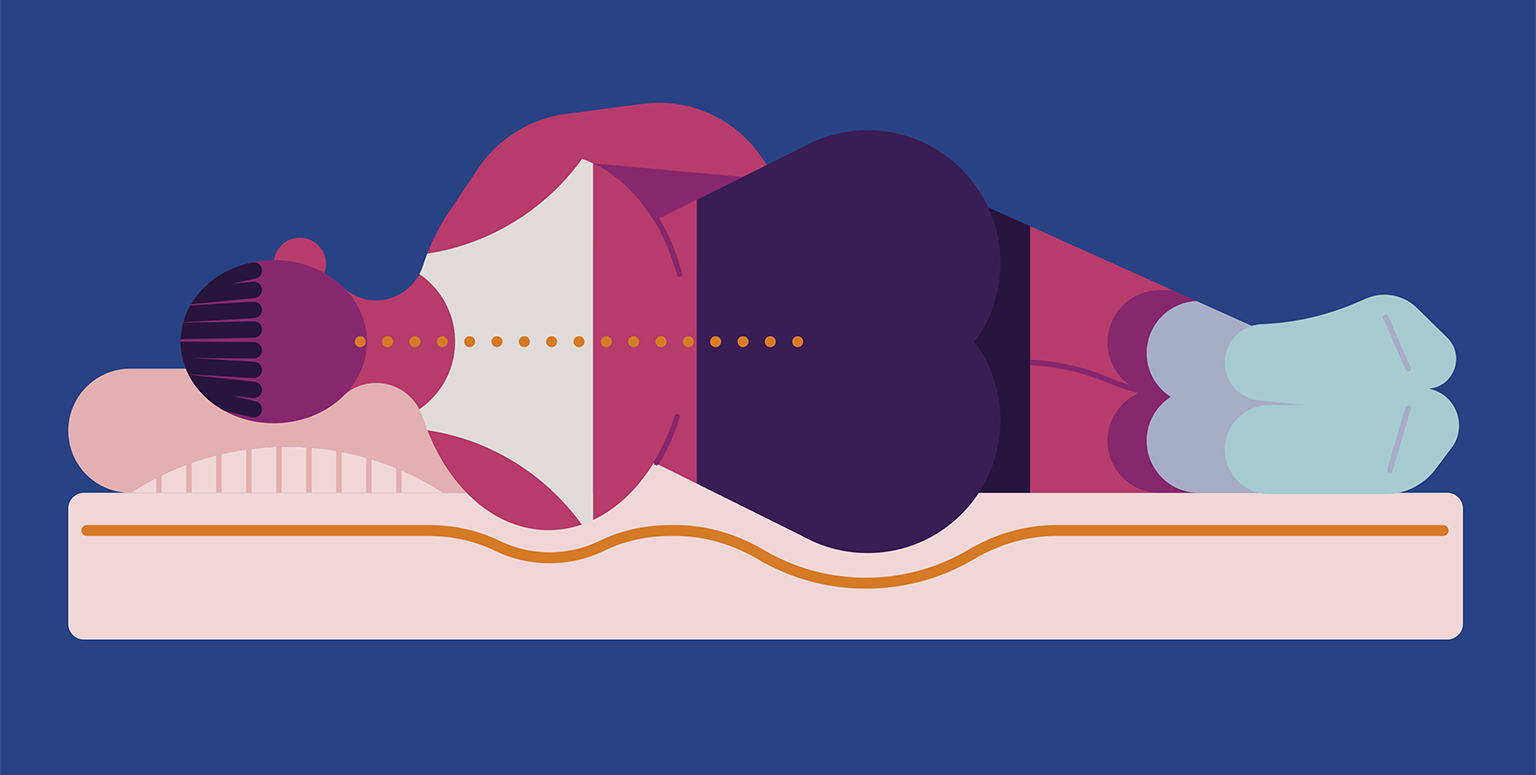
Theres still much we dont know about sleep, and understanding exactly what it is and why we need it can feel difficult. Cutting through the jargon and getting to grips with some simple scientific principles will help you to understand more about this vital process.
The simple truth about sleep | Contents
g
Sleep is amazing in ways that science has only recently begun to discover. That we spend so much of our lives doing it perhaps highlights the biological importance of sleep.
When we sleep, we enter a specific state that lies somewhere between consciousness and unconsciousness the body is at rest, but the brain remains highly active and hard at work. Sleep is vital for our survival, and a whole range of biological functions can only be undertaken while we are in this state. Scientists are discovering more all the time, but the main functions of sleep seem to be: diverting energy into clearing harmful toxins from the brain and body, consolidating learning and memory, boosting the immune system, balancing our emotional states, and repairing and restoring cells in the body. These rejuvenation processes are essential for us to function optimally, and when we sleep well our mental, cognitive, and physical health are all dramatically improved.
Although many of the mysteries of sleep remain unknown, what is becoming increasingly clear is that sleep is essential to our wellbeing, and that in order to live well, we must take it as seriously as we take eating and exercise. The more science uncovers, the more we understand that good sleep holds the keys to health and happiness.
Apart from its biological function, consistent, good sleep quite simply feels great. By understanding sleeps importance and how to improve it, its possible to let go of worrying about it, get into bed, and just drift off.
The brain and body in sleep
While we sleep, the brain and body undergo a series of repair and consolidation processes that affect every aspect of our functioning.
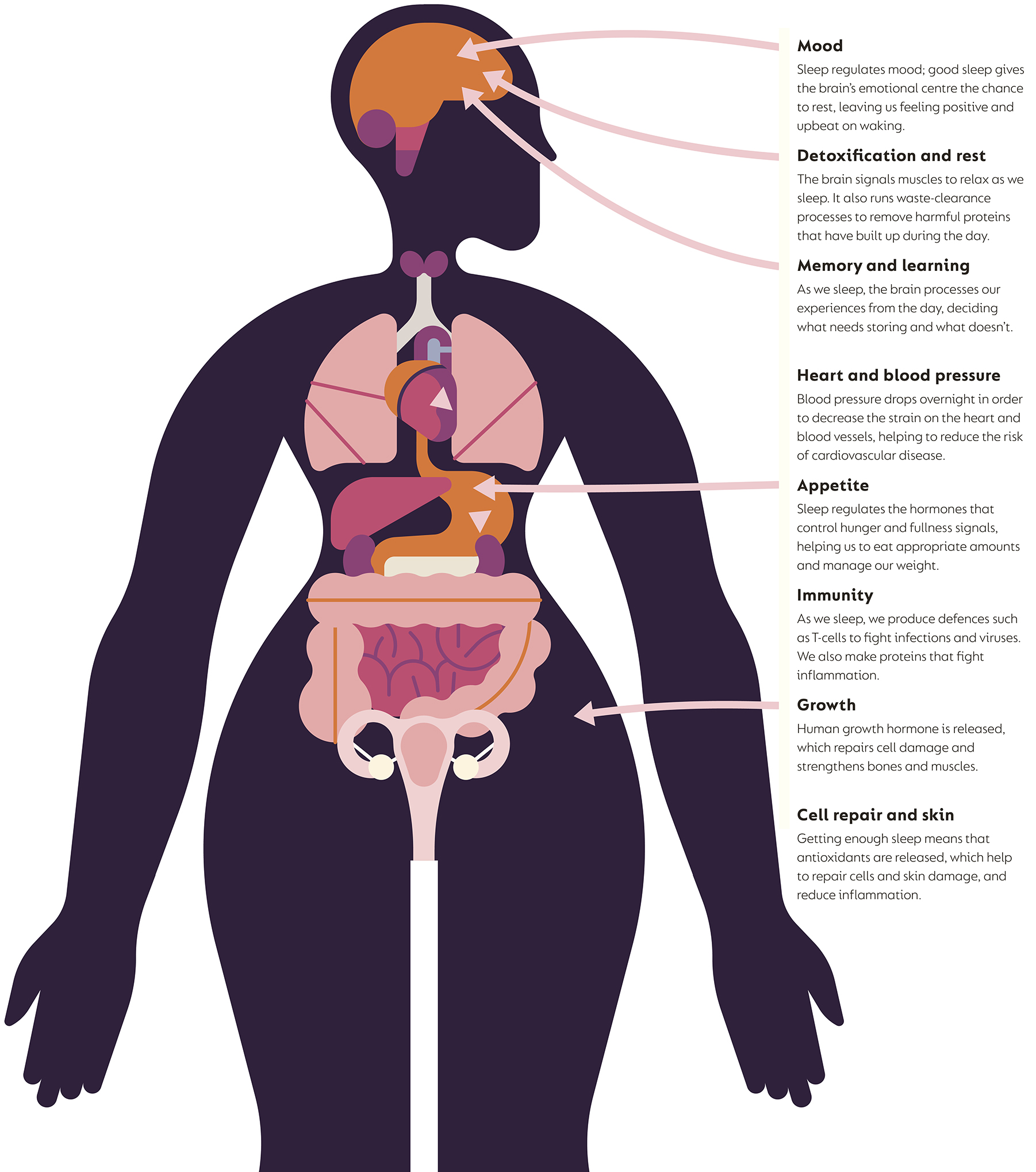
n Double-tap image to read the labels
Mood
Sleep regulates mood; good sleep gives the brains emotional centre the chance to rest, leaving us feeling positive and upbeat on waking.
Detoxification and rest
The brain signals muscles to relax as we sleep. It also runs waste-clearance processes to remove harmful proteins that have built up during the day.
Memory and learning
As we sleep, the brain processes our experiences from the day, deciding what needs storing and what doesnt.
Heart and blood pressure
Blood pressure drops overnight in order to decrease the strain on the heart and blood vessels, helping to reduce the risk of cardiovascular disease.
Appetite
Sleep regulates the hormones that control hunger and fullness signals, helping us to eat appropriate amounts and manage our weight.
Immunity
As we sleep, we produce defences such as T-cells to fight infections and viruses. We also make proteins that fight inflammation.
Growth
Human growth hormone is released, which repairs cell damage and strengthens bones and muscles.
Cell repair and skin
Getting enough sleep means that antioxidants are released, which help to repair cells and skin damage, and reduce inflammation.
Font size:
Interval:
Bookmark:
Similar books «The Science of Sleep»
Look at similar books to The Science of Sleep. We have selected literature similar in name and meaning in the hope of providing readers with more options to find new, interesting, not yet read works.
Discussion, reviews of the book The Science of Sleep and just readers' own opinions. Leave your comments, write what you think about the work, its meaning or the main characters. Specify what exactly you liked and what you didn't like, and why you think so.

